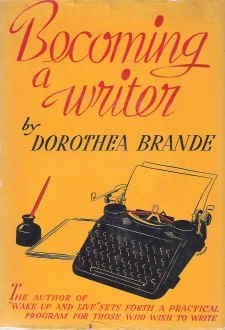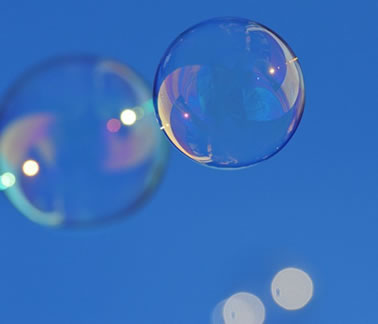Today, my mind is dreamy and floaty, meditative and reflective; full of voom. It’s rare to be in so creative a state. I feel it’s essential to honour it and make the most of it, if possible. After ‘Edit novel’ this morning, my iCal for the day reads, ’Do accounts’, but I decide that this would be a waste of the mood. (This isn’t procrastination, although on other days counting bus tickets can take me that way.) Yay, I’m free to play.
What could I do in this state? I could brainstorm a hundred and one ideas, then take time to expand one or more of these. I could write a heartfelt letter to friends I’ve neglected for a long time (I’ve neglected writing the letters rather than neglected the friends – ahem). I could write newsletters or blog posts or resources for my writing students. The slight problem with this mood is that I feel so creative – so able to do anything and everything – that it’s hard to decide. I’m at risk of butterflying around.
There’s a bigger hitch too. This state was engendered – engineered by accident – through sleep deprivation, through having two rotten nights’ sleep in a row. So while I want to do all the above tasks, my mind can barely retain information for more than a nanosecond. The sleep dep. means I’m fighting too with moments of feeling a bit ill. Ideas appear like soap bubbles in the air, but they burst on contact with my brain. I reach with my thought tentacles to touch, catch an idea, put it in my little net, when … poof, it’s gone.
It becomes a game: ‘There’s one … oh, it’s gone’. ‘There’s another – yes, had a chance to jot that down’. ‘Oh, hello new idea, I like you … no, dash it, you’ve dissolved’. But I don’t feel perturbed because, in spite of the slightly unwell feeling, this is a very optimistic mood. Underneath the tiredness, I’m light as air, like a child. The ideas are easy come, easy go, easy come, easy go. It’s a lovely, flowy feeling.
But I do want to do something. When finally get steely about corralling my mind, I make a determined grab for my laptop, open up writing programme Scrivener, put it onto blank screen mode (which I do usually as it cuts out other ideas and distractions, though today I need this more than usual), and start revising from where I left off yesterday. In fact, I sink into the work and it’s a relief from all that flitting. A feature of this state is that is that it allows deep focus on a single task. Earlier on, I was unable to prioritise the idea ‘start day’s work on novel’ over others for long enough to take action.
My instinct is that today’s novel writing will be only competent because, as mentioned, I assume this mood is better for mapping out ideas or writing new things rather than rewriting and editing. Happily, I’m wrong. Today’s novel writing experience is wonderful. I don’t mean that I write beautiful, tear-stained prose (although I have a hunch it’s better than yesterday’s), but the words flow and I enjoy it and feel I could carry on at the end. (It seems to follow that if you enjoy a session then the writing flows, and if the writing flows, you enjoy a session.)
The mood proves helpful in an unexpected way. The chapter I’m rewriting is a deathbed scene set in a remote location on an island at night. Time speeds up and slows down in strange ways. In my tired but creative state, I’m able to mimic the mindset of one of my protagonists, whose brain struggles to focus on any one thing as a result of prolonged stress and trauma – she’s witnessed a series of magical, surreal and violent goings-on. In this scene, she also has to respond and take action when she’s just woken up or is just falling to sleep. Parts of the scene occur in those strange hypnagogic and hypnopompic (love these words) states between wakefulness and sleep. My whole day has felt like this, so I’m able to let rip.
How to achieve a highly creative state
The less healthy way
Some ideas:
- Drink too much alcohol then wait for the evening the following day – the tail end of a hang over can be surprisingly creative.
- Sleep on a storm-tossed boat for a few nights, or live with a baby or toddler and ‘benefit’ from the concomitant sleep lack and swirling state of mind (occasional snappishness comes with this one).
- Get an opiate habit and then kick it. I once heard Will Self recommend this when he was in conversation at a literary event back in the early 1990s – fine if you survive it but less frabjous for your art if not.
The healthy way
Other things that help cultivate a highly creative state are:
- A chunk of solitary time daily – ideally take a lone, ambling walk.
- Go for a swim – great for getting the ideas bubbling up, although you might forget them because you can’t write them down. (Anyone know of a notebook and pen that work sub marine?)
- Running works for some, although I find the fast pace means that the wind steals all my ideas – but as a runner friend said, ‘Even if you haven’t solved your problem, you feel so good at the end of a long run that you just don’t care’.
- Do boring household chores in silence or to music that doesn’t have words or has words but in a language you don’t understand – weirdly, scrubbing fingerprints off door jambs does it for me.

The original guide for writing students and still the best.
Or go the full Dorothea Brande
Writer Dorothea Brande’s classic how-to book, Becoming a Writer, first published in 1934, includes an exercise at the end (p154-157 in my 1996 Macmillan edition) where she recommends focusing idly on any story idea, then taking it for a gentle walk, having a bath, resting in bed for between twenty minutes and two hours, then getting up and writing in a somnambulistic state. Read Becoming a Writer free via this PDF link.
This really works but if you have a hectic life, you may want to just wait until the mood occurs naturally, as it did with me today.
Enjoyed this post? Please sign up to my newsletter:
[x_subscribe form=”2203″]

